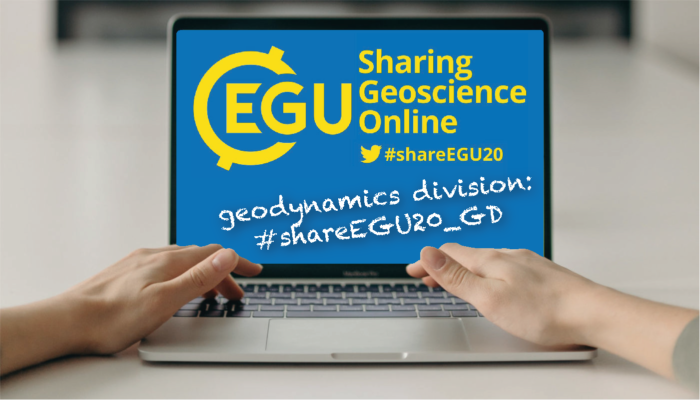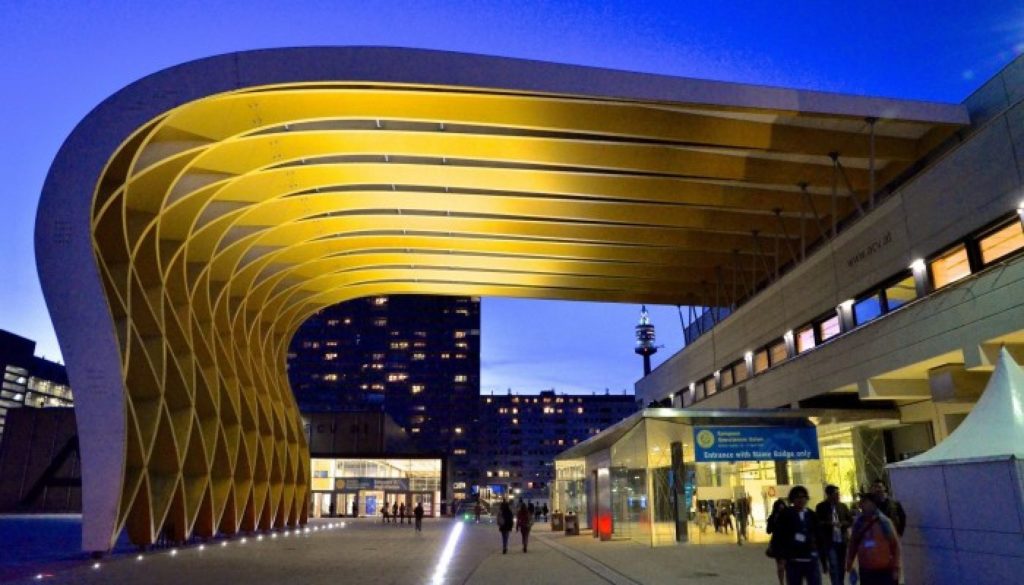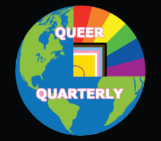
In response to the growing concerns over the COVID-19 epidemic, EGU has cancelled the physical General Assembly in Vienna and will instead host EGU 2020: Sharing Geoscience Online (#shareEGU20), a week-long series of online activities during which attendees can remotely interact, discuss and share research. With the virtual GA looming in less than a week, it’s time for all attendees to finish (or start) their scientific contributions and figure out how to make the most out of this online event. In todays blog post, GD Early Career Scientists (ECS) representative Nico Schliffke and Anna Gülcher will guide you through the most important concepts of #shareEGU20, including relevant events for the GD division, networking events for ECS and useful links.
Concept of #shareEGU20
EGU20 is a completely virtual alternative to the physical GA that allows abstract authors to share presentation materials and open these for live discussion as well as participate in a selection of online networking events. No separate registration or payment of a registration fee is needed for participation. Sharing Geosciences Online is not only an alternative to the classical physical conference format to ensure scientific discussion and exchange, but it can also be seen as a trial on how such large conferences might be held virtually in the future. Online conferences can thus not only contribute to reducing science’s carbon footprint (for example, see this blog post on science and climate change), they also increase accessibility and inclusion by removing barriers, e.g. for participants who do not have the financial security of booking a week’s travel to Vienna.
Certainly, a digital alternative can not replicate all social experiences at physical meetings (such as coffee breaks, icebreaker events, dinners with colleagues, karaoke nights, etc) and participants may have concerns about some aspects of this new conference format. Yet, much like any physical conference, the online GA will be as successful as its participants are willing to make it! Only a high necessity of participation will improve the impact of the virtual GA. The more people that participate in the virtual events, the better the scientific outcome, the more can be learned for future events and thus the better for our scientific community as a whole.
Much of the original programme has been shifted online. Below is a summary of the events and the format they will have during the virtual GA:
- Scientific sessions: during the week of EGU20, each session hosts a live, text-based chat for community exchange and discussion on the presentations of that session. Detailed information for authors and participants for each session can be found on the scientific sessions’ page. For uploading the presentation materials and commenting on them, authors and participants only need to have a Copernicus user account. Viewing the presentation materials and participating in the chats does not require registration or login. There is an online material upload recipe that guides authors in uploading their presentations. For some ideas on how to make your research into an attractive display on your online session, see this post by the TS division.
- Union symposia will be brought online through videoconferencing. Please check the US programme.
- Great debates will also be brought online through videoconferencing. You can check out the GDB programme.
- Short courses: a selection of the original 90 sessions will be offered online during 2020 in the form of webinars and/or downloads of recorded material. Please check the SC online programme to see individual scheduling days and times.
- Townhall meetings: a selection of townhall meetings will share materials and hold a discussion via live, text-based chat.

The EGU venue (Austria Center Vienna). We’ll be back in 2021! Credit: EGU/Stephanie McClellan
Conference highlights and GD division events
Despite several events having to be cancelled due to the shift online, EGU 2020: Sharing Geosciences Online still has a wide range of topics and sessions to offer. Below you will find a list of interesting and GD-specific events:
For first time (virtual GA) attendees:
How to make the most out of Sharing Geoscience Online (Mon, 08:30-10:15, chat) – This workshop is led by the EGU Communications team to help you with practical tips, guidelines and examples for the virtual GA.
Short courses:
Rhyme your Research (Mon, 16:15-17:30, interactive webinar) – Reveal the poet in you and explain your research in an interesting and unusual way!
Science blogging for beginners (Tue, 12:30-14:15, pre-recorded webinar) – This Short Course will include a tutorial on how to prepare a blog post. You can receive feedback on your resulting blog post, and it may even get published on one of the EGU blogs!
Mind your Head (Wed, 12:30-14:15, pre-recorded webinar) – People from all career stages and disciplines are invited for a discussion on mental health issues experienced by people working in academia.
Handling your data efficiently from planning to reuse – tips and tools to save time and nerves (Thu, 12:30-14:15, pre-recorded webinar) – This course will introduce you to useful tools and best practices that will make your work with research data much easier, more efficient, and enjoyable.
GD-specific events:
Division meeting for Geodynamics (GD) (Thu, 12:45-13:45, chat) – Elections and reports from the division president, ECS representative and other planning in GD related matters.
GD ECS networking and feedback event (Tue, 19:00-19:45, live webinar) – A completely new networking event! Detailed information is given below in this blog post.
Union Symposia and Great Debates
The future of Earth and Planetary Observations from Space (Tue, 10:45-12:30, live webinar) – Get informed on the current and future planetary exploration plans as seen by ESA, NASA and other space agencies!
Academic meritocracy: is it a challenge to women’s careers? (Wed, 16:15-17:15, live webinar) – This Great Debate will focus on what to do to avoid the loss of female talent in academia as well as to promote gender equality.
Values versus facts: should geoscience get personal? (Thu, 16:15-17:15, live webinar) – This Great Debate will outline what makes people believe fake news and misinformation and the impact that this has.
Other interesting events:
State of the Art in Earth Science Data Visualization (Tue, 16:15-18:00, live chat session) – Learn more about the visualisation and communication of large Earth science data sets!
Enabling Women in Geoscience: Inspiration, Challenges and Best Practice (Wed, 08:30-10:15, live chat session) – Share your experiences, successes and/or challenges from initiatives aiming to increase gender diversity in any area of geoscience during this session.
Geoscience Games Night (Wed, 18:00-21:00, live YouTube stream) – Join, socialise and play some games during the Geoscience Games Night!
Games for Geoscience (Thu, 16:15-18:00, live chat session) – Games are more fun than work! Learn more on how to use games for science communication, outreach and much more.
This is just a small list of possible activities during EGU20, there many more out there. So keep your eyes and ears open for additional events and spread the word if you know anything of particular interest. Also make sure you follow the GD Blog, our social media (EGU GD Facebook page) GD and EGU Twitter, to keep updated with any more information during the week! The official GD hashtag for EGU20 is #shareEGU20_GD.
ECS networking events
A central aspect of the physical GA in Vienna is the chance of networking, finding new collaborations or just meeting new people on an international level. As an alternative Networking event for ECS, many divisions, including GD, are planning an ECS Networking and Feedback event. The date for the GD event is Tuesday, 5th May at 19:00-19:45 CET. The idea is to provide a platform to meet new people in your field and thereby combine networking and general discussions with feedback on this new conference format. The event will happen via the communication platform Zoom. The current ECS representative will first give a brief introduction on the event, before splitting participants up randomly into two 10-15 minute sessions of breakout groups (or not, depending on the number of participants). There, together with your peers, you will have the chance to discuss science, your personal scientific situation, career paths or you gather collective feedback on the entire conference. However, the topics are not prescribed and can change depending on the dynamic and wishes of the participants. So every break-out session should be unique!
We can host up to a maximum of 100 people and therefore ask for an early registration. As with the entire conference, we do not know how the networking event will work out. Given the event will be driven primarily by the participants, we can be sure that the more the merrier! With a large group, we can expect a wider range of networking possibilities, science-based discussions, and we would also appreciate a large number of attendance to help EGU to get as much valuable feedback as possible. All feedback will be gathered at the end of the event and passed on to EGU to improve such online events in the future.
You can register in advance for this meeting through:
https://ethz.zoom.us/meeting/register/tJEvduyspjktH9WijeZkGtawknN5iedvhl_K .
After registering, you will receive a confirmation email containing detailed information about joining the meeting. We hope to see you there!
Shout-out to EGU volunteers
The EGU office and council, programme committee and hundreds of volunteer conveners around the globe have worked hard to shape such an exciting programme, and to make EGU20 as inclusive, environmentally friendly, and progressive as possible. On top of the ‘regular’ planning of GA in Vienna, many have worked restlessly to transfer the entire conference online within a few weeks. We would like to thank everyone who has been involved in this process, with a special mention of our ‘own’ Programme Chair Susanne Buiter! In the light of this very short-term shift online, we would also like to encourage everyone to approach Sharing Geosciences Online open-mindedly and provide EGU with any valuable feedback when facing problems or hurdles. By a joint effort from organisers and participants to shape the event, we should be able to provide a very solid base for an forward-thinking online conference in the future!
Useful links
Conference Programme:
https://meetingorganizer.copernicus.org/EGU2020/meetingprogramme
Material Upload Recipe:
https://www.egu2020.eu/sharing_geoscience_online/presentation_upload_recipe.html
Author and Convener Information for Scientific Sessions:
https://egu2020.eu/sharing_geoscience_online/scientific_sessions.html#forauthors
FAQ about Sharing Geosciences Online:
https://egu2020.eu/sharing_geoscience_online/sharing_geoscience_online.html
The main EGU blog with further information:
https://blogs.egu.eu/geolog/2020/04/01/shareegu20-planning-your-week-of-digital-interaction/x
Geodynamics Division:
https://www.egu.eu/gd/home/
GD Networking event registration:
https://ethz.zoom.us/meeting/register/tJEvduyspjktH9WijeZkGtawknN5iedvhl_K
How to use the personal programme:
https://egu.eu/7ZNIPB/
Working with our artists during #shareEGU20:
https://egu.eu/43MZ0B/
Presentation format:
https://egu.eu/2RRCP7/
The EGU Code of Conduct:
https://egu.eu/4ZWP3U/
Top 10 Tips for conveners:
https://egu.eu/9AIVPU/
Publication and copyright questions:
https://egu.eu/5UQ8YC/


